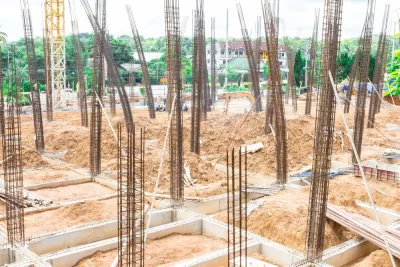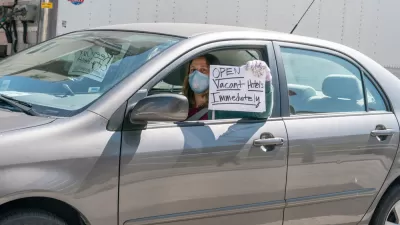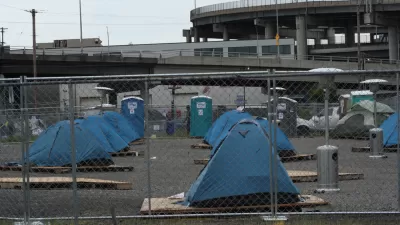Analysis from the Joint Center for Housing Studies of Harvard University predicts the pandemic will reduce rents, but only at the top of the market.

"While it is too early to know how COVID-19 will affect rental markets, early signs suggest another slowdown in demand is coming," according to an article by Whitney Airgood-Obrycki.
Data from the past three years informs the prediction that rental demand. In terms of historic demand, in 2017 and 2018, demand receded, according to Airgood-Obrycki, and only increased slightly in 2019 (and at a much slower pace than demand increased in every year from 2004 to 2016). But in a drastic difference from the last three years, the new wave of decreasing rental demand is likely to be caused by unemployment.
The situation is also clearly distinct from the last recession, when homeownership collapsed, pushing demand toward rental markets. Foreclosures could increase in the future, however, changing the equation as the economic crisis deepens and lengthens. "Even so, it currently looks unlikely that transitions from homeownership to renting would match the scale of the previous recession," according to Airgood-Obrycki.
Future construction could also change the whole equation, according to Airgood-Obrycki. New data from the U.S. Department of Commerce indicates that construction slowed drastically in the past month. Single-family home construction in March fell 17.5% from February, while multi-family housing starts fell 32.1% between February and March. The industry is laying off workers in large numbers as well, preparing for worse.
Airgood-Obrycki's summary of the situation, after surveying all the indicators, is that rent will only get cheaper at the high-end of the market. "Cooling demand could soften rents at the high end of the market, but those benefits are unlikely to translate to lower rents at the bottom end as households compete for an already limited low-rent supply." Airgood-Obrycki assessment's thus resembles a recent prediction by analysts from the Brooking Institution—that the coronavirus is likely to deepen social and economic inequality in the country.
FULL STORY: RENTAL MARKET LIKELY HEADED FOR A SLOWDOWN

Alabama: Trump Terminates Settlements for Black Communities Harmed By Raw Sewage
Trump deemed the landmark civil rights agreement “illegal DEI and environmental justice policy.”

Planetizen Federal Action Tracker
A weekly monitor of how Trump’s orders and actions are impacting planners and planning in America.

Why Should We Subsidize Public Transportation?
Many public transit agencies face financial stress due to rising costs, declining fare revenue, and declining subsidies. Transit advocates must provide a strong business case for increasing public transit funding.

Understanding Road Diets
An explainer from Momentum highlights the advantages of reducing vehicle lanes in favor of more bike, transit, and pedestrian infrastructure.

New California Law Regulates Warehouse Pollution
A new law tightens building and emissions regulations for large distribution warehouses to mitigate air pollution and traffic in surrounding communities.

Phoenix Announces Opening Date for Light Rail Extension
The South Central extension will connect South Phoenix to downtown and other major hubs starting on June 7.
Urban Design for Planners 1: Software Tools
This six-course series explores essential urban design concepts using open source software and equips planners with the tools they need to participate fully in the urban design process.
Planning for Universal Design
Learn the tools for implementing Universal Design in planning regulations.
Caltrans
Smith Gee Studio
Institute for Housing and Urban Development Studies (IHS)
City of Grandview
Harvard GSD Executive Education
Toledo-Lucas County Plan Commissions
Salt Lake City
NYU Wagner Graduate School of Public Service





























